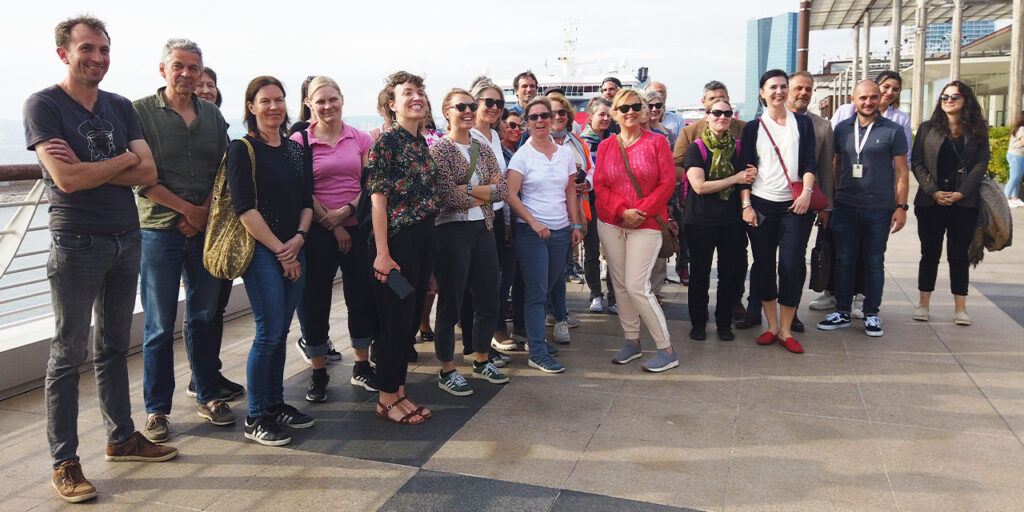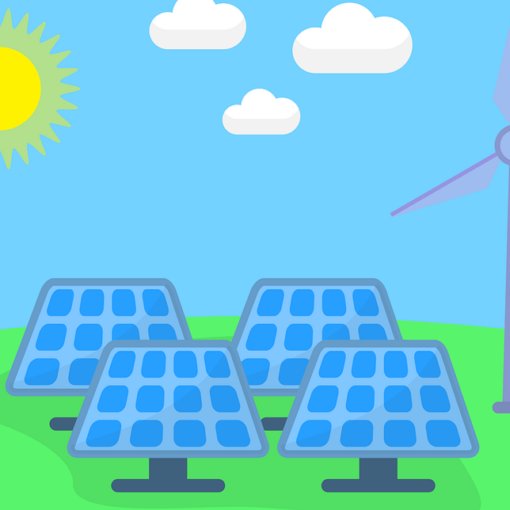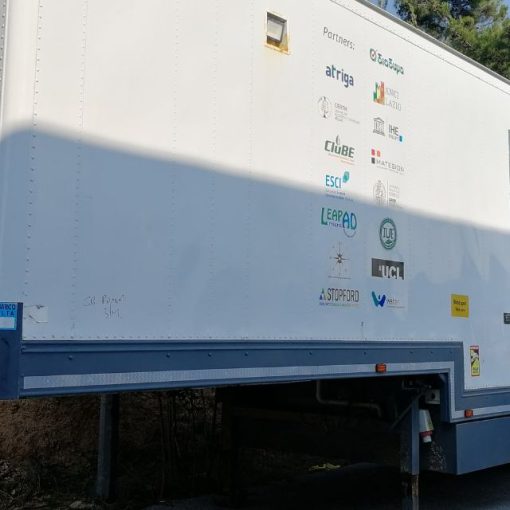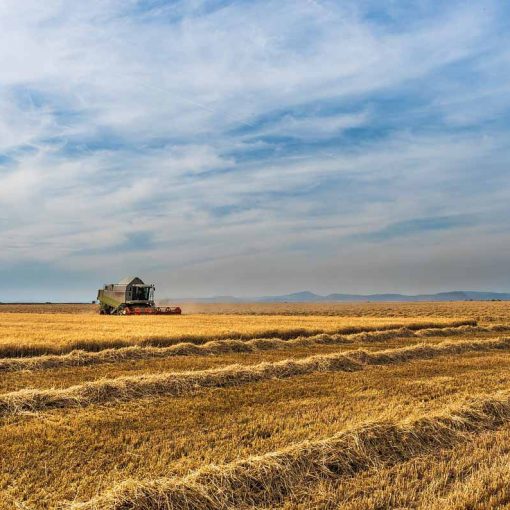The Provence-Alpes-Côte d’Azur Region in Marseille, France hosted in May 2022 the CECI Interregional Meeting focusing on their good practices and site visits. The meeting included also cycling through the busy streets of Marseille (Medkova & Villanen 2022).

Plastic pollution affecting the seas
The location on the shores of the Mediterranean has made marine plastic waste a prominent part of the circular economy in the region. Plastic Odyssey, a non-profit organization travels around coastal areas by vessel campaigning against plastic waste. They operate in countries without waste management and offer low-tech solutions for plastic collection. In addition, they provide tools for local businesses to make new products from collected plastic and the vessel acts as a mobile lab for different companies. Another NGO, Wings of the Ocean, owns two sailing ships. It involves local volunteers collecting and analysing debris. They organise activities to prevent the littering of the seas and share information about the harmfulness of plastic debris. They also are looking for solutions, supporting local social enterprises, and involving local people.
The almost non-existent waste management, and yet there are great actions
The general waste management seemed to be non-existent. Therefore, there is great importance in the work done by organisations like Synchronicity that collects recyclable waste from various shops located in the city centre by bicycle. By doing this, they reduce the need to use large trucks and reduce drastically the CO2 emissions.
Terrasses du Port shopping mall is one of the front runners in waste management in the region. They work together with Veolia waste management. The various waste fractions are pre-sorted at the shopping mall and delivered directly to their destinations. The goal for the future is also to handle waste in the area. The mall is part of the Hammerson Group, which strives to reduce negative impacts and make a positive impact on the region including emission reduction, waste management, energy, water, and the socio-economic components. The rooftops of the mall have 5000 m2 of solar panels, beehives, and plants to increase biodiversity. Biowaste is treated on-site to produce electricity and fertilizer. The future idea is to have other companies in the neighbourhood benefit from the biogas plant.
Cooperation brings citizens together
Cooperative and participative grocery store Super Cafoutch has been in operation for over 5 years and is now building a new retail shop in the city centre. The business is run through co-payments, product sales and donations. The shop sells local and organic products, but also coffee and tea, for example. The store prices are affordable because the products are bought directly from the producers. Super Cafoutch cooperates with Le République, a social and environmental restaurant that aims to bring all people of Marseille together in their premises. Besides fully paying customers, they offer beneficiaries meals for a symbolic one Euro thanks to the support of partner associations and social entities. (Interreg Europe 2020.)
The visit to Marseille offered many interesting insights and topics, it also invited the visitors to acknowledge the differences in partner regions, how unlike the states of the art are and yet still similar good practices could provide solutions.
Authors
Katerina Medkova works as an RDI Specialist at LAB University of Applied Sciences and is CECI Communication Manager. CECI – Citizen Involvement in Circular Economy Implementation is an Interreg Europe co-funded project led by LAB University of Applied Sciences, Finland.
Johnna Snell works as a CECI project coordinator in the Regional Council of Päijät-Häme.
Marjut Villanen works as an RDI Specialist at LAB University of Applied Sciences and is CECI Project Manager.
References
Interreg Europe. 2020. Cooperative supermarket – Supercafoutch. Cited 18 Jun 2022. Available at https://www.interregeurope.eu/good-practices/cooperative-supermarket-supercafoutch
Medkova, K. & Villanen, M. 2022. Comparing cycling conditions in three European cities. LAB Focus. Cited 18 Jun 2022. Available at https://blogit.lab.fi/labfocus/en/comparing-cycling-conditions-in-three-european-cities-%ef%bf%bc/
Links
Link 1. Interreg Europe. 2022. Project Summary. CECI. Cited 13 Jun 2022. Available at https://projects2014-2020.interregeurope.eu/ceci/




